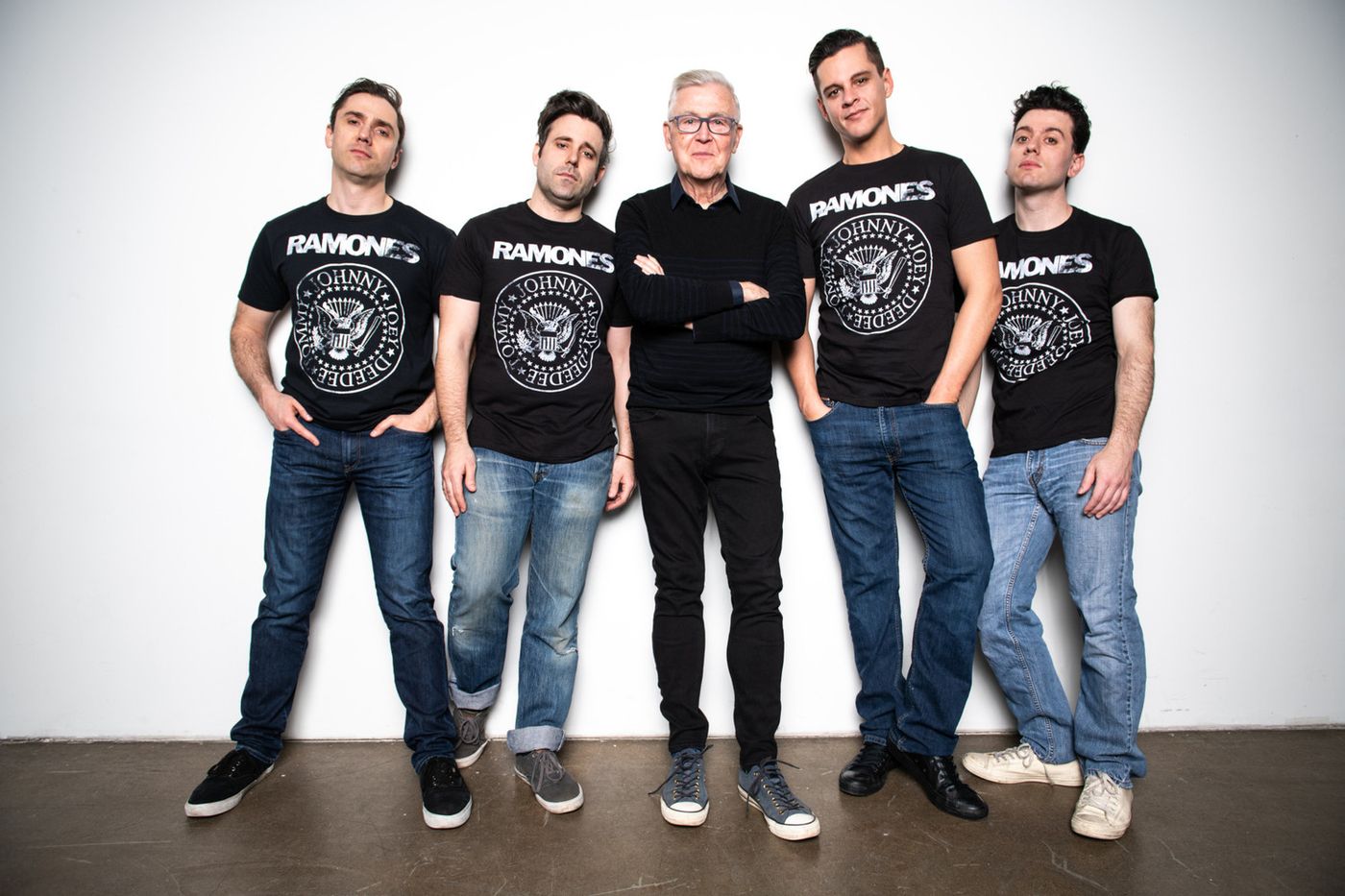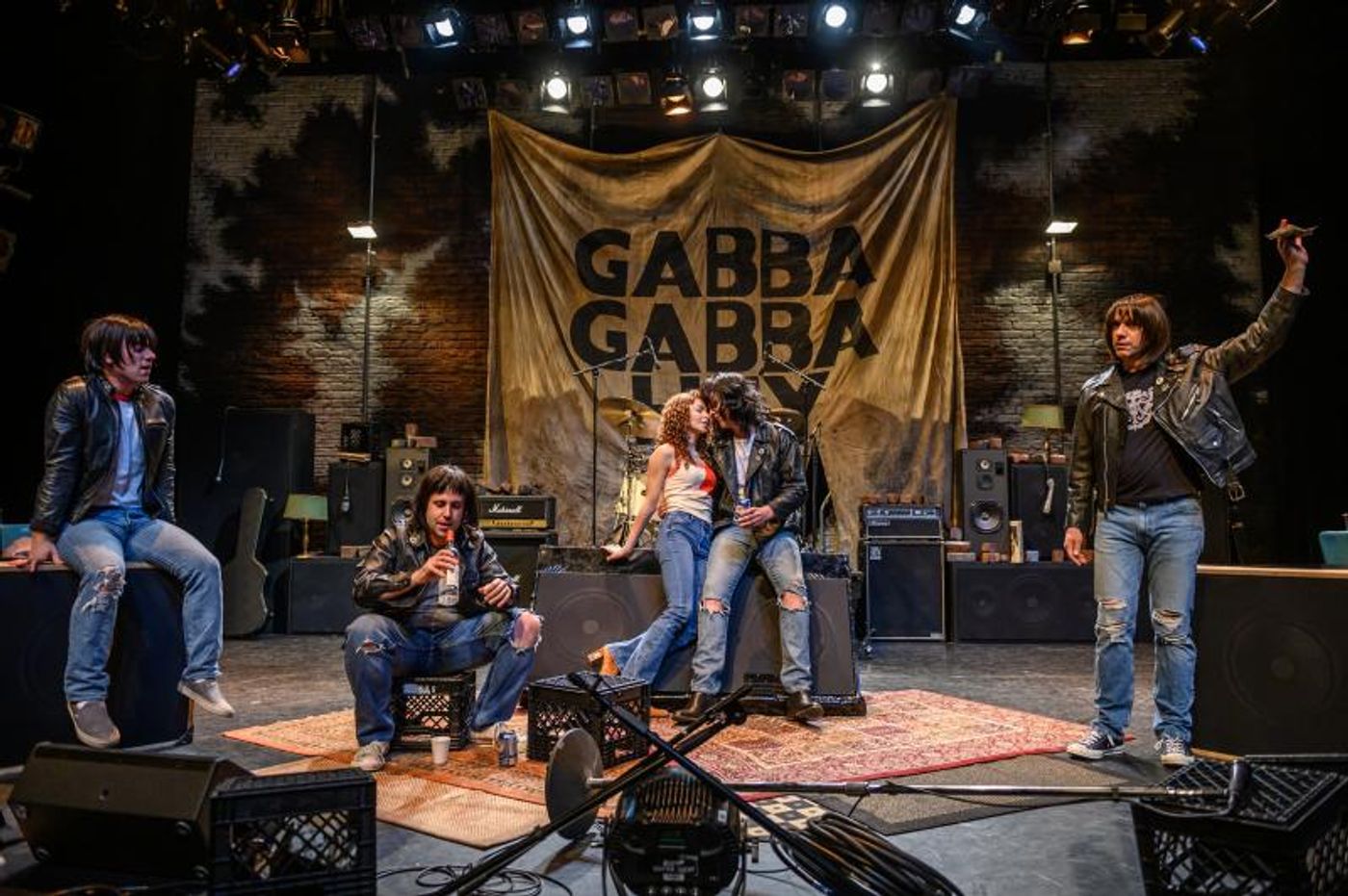Interview: Director Richard Ouzounian Talks FOUR CHORDS AND A GUN

Renowned theatre director and critic Richard Ouzounian returned to the Toronto arts scene once again this month with his production of FOUR CHORDS AND A GUN, a fictionalized account of what happened during the collaboration between the Ramones and infamous producer Phil Spector. The play investigates the dynamic between the band members, Spector's control over the musicians, and a love triangle between lead singer Joey, guitarist Johnny, and the fiery Linda.
Ouzounian hadn't been aware of the show until an Old Acquaintance reached out to him. "Brian Nitzkin had been the guy I had to contact to get the rights for Jerry Springer: The Opera when I did it at Hart House, and he said he remembered how enterprising I was to track him down and how tenacious I was about getting the rights, and what a great production it was. He sent me a copy of the script, and I realized it was certainly different from what I've done in the past."
Nitzkin convinced Ouzounian to fly out to Tulsa and see the show in its initial production. "It was a tiny little theatre with a hundred seats, and they were doing it for ten days. I liked the show and John (Ross Bowie, playwright) and I got along, so we shook hands and Nitzkin said 'Good, you're now the director of the production, what are we going to do with it?' I already knew who to give it to in Toronto, so I came back and went to Corey Ross. Corey is three different people to me, he does commercial projects, he also - this is less well known - he's put up a lot of the money for some of the big independent shows in town to help them get a leg up to do it. The third thing he can do is tour around the world. So, I thought this is a man who likes commercial, and likes indie, and likes worldwide, and I thought if anyone is going to take this it would be him."
Ouzounian thought right, and once Ross was onboard the planning for the Toronto production was underway. "Once we got the dates - some people thought this was heresy - I didn't audition anyone for this show. I guess I figured after twenty-odd years of seeing virtually every show in Toronto, I know who's out there and could go 'oh, that's him, oh that's her.' And then I have favourite designers I've worked with over the years. The team who are doing this, Nick Blais (set and lighting design) and Ming Wong (costume design) did Merrily We Roll Along at Sheridan College for me in 2013, and I admire their work so I brought them together and it all just happened from there."
Despite his deep ties to musical theatre, Ouzounian was excited to take on a non-musical production - in fact, the tagline of FOUR CHORDS AND A GUN is that 'it's not a f**king musical,' a result of an early conversation between the director and the show's marketing team. Rather, Ouzounian drew on his personal ties and similarities to the Ramones to bring a new level of depth to the script.

"You know, even when I was 18 and into musicals, I liked rock music. I am literally as old as the two oldest Ramones would be had they lived. I was about the age they were when they played at CBGBs, and I lived in New York in those years. I grew up in a neighbourhood in Queens not very far from where the Ramones grew up, so the story hit a lot of spots for me. I knew all about what punk rock was in New York at that time, and what they were doing, so although it sounds like 'what is Richard doing working on this show?' it really is close to my background, to the people I know, and to the society I grew up in. I would be able to explain allusions in the script that others wouldn't know, I could say 'no, that's a reference to this restaurant, this is a reference to that bar, that's this place, that's that place,' and so on."
Aside from his personal connection to Queens and similarities to the Ramones, Ouzounian found a secondary focus in the story's narrative that allowed for a strong connection to current issues - primarily, the #MeToo movement.
"When we were first thinking about the play, although it (#MeToo) had surfaced it hadn't gone to the extent it's at now. I'm not talking about sexual harassment explicitly, but where it does fall is that it's made us aware of artistic people who have bullied other people. And I realized reading the script one day that Phil Spector is a classic case of abuse. He was abused as a child, so he takes it out on other people. He isolates people, he plays them against each other, he learns their weaknesses, he does everything he has to do. In this case, it was because he wanted to turn the Ramones into a different kind of band."
As history and FOUR CHORDS AND A GUN proves, the dramatic shift in sound did increase the Ramones' standings in the charts, but it also damaged the relationships between the band members. "The Ramones worked as a tight unit. They grew up together and Spector had to break that apart. He did it by praising Joey, by attacking Johnny, by playing up Dee Dee's drug addiction and ambivalent sexuality, by just feeding Marky - who was a horrible alcoholic - liquor after liquor after liquor, and actually trying to steer things around so that Johnny and Linda and Joey, the romantic triangle, would fall down the way he wanted. That's what made the play suddenly have another level to me, it took it away from being just a rock and roll biopic. I wanted people to know how totally Machiavellian and evil Phil Spector was, and that while he could be charming, he was Satan."

Aside from the darker tones to the narrative, Ouzounian found a more positive angle to highlight in the story that aligned with the Ramones' ideals and one of the core functions of punk music and culture. "The theme that keeps coming out in the play is that you must be what you are, and you must play the music that you are. That's why End of the Century was such a crucial album, because Phil tried to get them away from what they were. He tried to bend and form them, and that's also one of the reasons they ended up splitting apart for awhile - it was because they wanted to stay pure and they wanted to do what they wanted."
The concept of returning to one's core beliefs is what reunited the Ramones following their post-End of the Century hiatus and it's something Ouzounian championed and emphasized in this production. "You must know who you are, and that doesn't mean you just stay the same forever - but you must find out what's at the root of your art form and honour it and keep true to it. And the Ramones tried that. They never became giant stars because they always did their thing, their four chords, their three musicians and a vocalist, and had this methodology of 'lets try to play twenty-five songs in an hour, lets just get it out there.' I think that's their lesson."
"I think the secret of the Ramones and what they taught people is that if you have an aesthetic you're playing, if there's something you do really well, you shouldn't muck with it...That's why I think there are younger people today who respect the Ramones, because they see in their simple stodgy purity of punk something that's worth holding onto."
FOUR CHORDS AND A GUN is playing at the Fleck Dance Theatre, 207 Queens Quay W, Toronto, ON until April 28.
For more information, or to purchase tickets visit https://www.4chordsplay.com/
Videos

